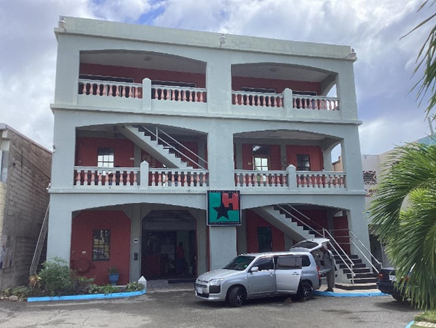Liberty Hall, King Street, Kingston
During the early 20th century, patriotic Jamaicans established
organizations to promote Jamaicans of all colours, creeds and classes working
together for the good of the country. On Emancipation Day 1914, the Jamaica
League was founded “to promote patriotic sentiment and mutual interest, to
encourage unity of aim and effort among all sections of the community and to
stimulate and foster individual and cooperative ventures tending to the
intellectual, economic, social and moral improvement of the people of the
island.” Branches of the League were established across the island, with the
main branch being in Kingston. In 1918, Thomas Gordon Somers, Jamaica Baptist
Union minister and outstanding preacher, was president of the League, while
Gabriel E. Stewart was the body’s second vice president.
Stewart was a strong supporter of Garvey’s Universal Negro Improvement
Association and African Communities League (UNIA). After Garvey relocated to Harlem, New York in 1916, and
established there the new headquarters of the UNIA movement, G. E. Stewart
migrated to America, and as a committed Garveyite, it is unsurprising that he
went to New York and associated himself with the Garvey movement there. Soon,
he rose to the office of High Chancellor of UNIA. According to Section 19 of the UNIA
constitution, the High
Chancellor “shall be the custodian of the funds of the Universal Negro
Improvement Association and African Communities’ League and shall, under the
direction of the President General, deposit all funds in some responsible bank.
He shall give bond to the President General, which bond shall be well
recognized. He shall attend Convention and deliver the Financial Speech of the
year.” Stewart also served as a sort of chaplain at UNIA meetings.
Meanwhile, on January 31, 1920, the following churches
advertised their Sunday services in The Gleaner under the heading “National Baptist Convention:”
Bethlehem, 109 Charles Street; First Church, Elletson Road; New Providence,
Barbican; Bethel, Passmore Town [near Franklyn Town]; New Western; Bethel,
Eleven Miles Mount Moriah; Bethlehem, Hall’s Green; Hartlands; Shiloh, Rose
Hill; Antioch, Manchester, and Gethsemane.
The National Baptist Convention of America in Jamaica
did not enjoy longevity. Indeed, some of the old Baptist churches that refused
to become mission churches under the leadership of British Baptist missionaries
– including some of the NBC churches – eventually united with the Allen Temple
African Methodist Episcopal (AME) Church at 89 Beeston Street in
Kingston to form the AME Church in Jamaica.
At that time, many of the AME churches in Jamaica
practised both infant baptism and believers’ baptism by immersion and they
continued to do so while they were under the de fact leadership of Alexander
Dumar. Eventually, this baptismal practice caused the AME Church to lose its
outstanding local leader, Dumar, whose organization found him to be out of step
with standard AME church teachings and practice. In 1931, a bishop was
appointed who displaced Dumar. This led to the partial disintegration of the AME
Church in Jamaica.

Comments
Post a Comment